Related Research Articles
Anarchism is a political philosophy and movement that is against all forms of authority and seeks to abolish the institutions it claims maintain unnecessary coercion and hierarchy, typically including the state and capitalism. Anarchism advocates for the replacement of the state with stateless societies and voluntary free associations. A historically left-wing movement, anarchism is usually described as the libertarian wing of the socialist movement.

The American Revolutionary War, also known as the Revolutionary War or American War of Independence, was an armed conflict that was part of the broader American Revolution, in which American Patriot forces organized as the Continental Army and commanded by George Washington defeated the British Army. The conflict was fought in North America, the Caribbean, and the Atlantic Ocean. The war ended with the Treaty of Paris (1783), which resulted in Great Britain ultimately recognizing the independence and sovereignty of the United States.

The American Revolution was a rebellion and political movement in the Thirteen Colonies which peaked when colonists initiated an ultimately successful war for independence against the Kingdom of Great Britain. Leaders of the American Revolution were colonial separatist leaders who originally sought more autonomy as British subjects, but later assembled to support the Revolutionary War, which ended British colonial rule over the colonies, establishing their independence as the United States of America in July 1776.

Percival Lowell was an American businessman, author, mathematician, and astronomer who fueled speculation that there were canals on Mars, and furthered theories of a ninth planet within the Solar System. He founded the Lowell Observatory in Flagstaff, Arizona, and formed the beginning of the effort that led to the discovery of Pluto 14 years after his death.

Thomas Paine was an English-born American Founding Father, French Revolutionary, inventor, and political philosopher. He authored Common Sense (1776) and The American Crisis (1776–1783), two of the most influential pamphlets at the start of the American Revolution, and he helped to inspire the colonial era patriots in 1776 to declare independence from Great Britain. His ideas reflected Enlightenment-era ideals of human rights.
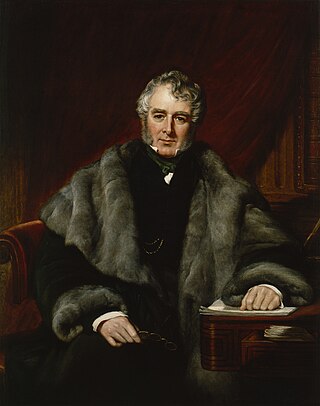
Henry William Lamb, 2nd Viscount Melbourne was a British Whig politician who served as the Home Secretary and twice as the Prime Minister of the United Kingdom.

John Deere was an American blacksmith, businessman, inventor and politician. He founded Deere & Company, one of the largest and leading agricultural and construction-equipment manufacturers in the world. Born in Rutland, Vermont, Deere moved to Illinois and invented the first commercially successful steel plow in 1837.

Lamb of God is a title for Jesus that appears in the Gospel of John. It appears at John 1:29, where John the Baptist sees Jesus and exclaims, "Behold the Lamb of God who takes away the sin of the world." It appears again in John 1:36.
Human history is the record of humankind from prehistory to the present. Modern humans evolved in Africa around 300,000 years ago and initially lived as hunter-gatherers. They migrated out of Africa during the Last Ice Age and had populated most of the Earth by the end of the Ice Age 12,000 years ago. Soon afterward, the Neolithic Revolution in West Asia brought the first systematic husbandry of plants and animals, and saw many humans transition from a nomadic life to a sedentary existence as farmers in permanent settlements. The growing complexity of human societies necessitated systems of accounting and writing.

The Sons of Liberty was a loosely organized, clandestine, sometimes violent, political organization active in the Thirteen American Colonies founded to advance the rights of the colonists and to fight taxation by the British government. It played a major role in most colonies in battling the Stamp Act in 1765 and throughout the entire period of the American Revolution. Historian David C. Rapoport called the activities of the Sons of Liberty "mob terror."

HMS Neptune was a Leander-class light cruiser which served with the Royal Navy during World War II. Neptune was the fourth ship of its class and was the ninth Royal Navy vessel to carry the name.
Jonathan Dermot Spence was a British-American historian, sinologist, and author specialised in Chinese history. He was Sterling Professor of History at Yale University from 1993 to 2008. His most widely read book is The Search for Modern China, a survey of the last several hundred years of Chinese history based on his popular course at Yale. A prolific author, reviewer, and essayist, he published over a dozen books on China. Spence's major interest was modern China, especially the Qing dynasty, and relations between China and the West. Spence frequently used biographies to examine cultural and political history. Another common theme is the efforts of both Westerners and Chinese "to change China", and how such efforts were frustrated.

Jesus, also referred to as Jesus Christ, Jesus of Nazareth, and many other names and titles, was a 1st-century Jewish preacher and religious leader. He is the central figure of Christianity, the world's largest religion. Most Christians believe Jesus to be the incarnation of God the Son and the awaited messiah, or Christ, a descendant from the Davidic line that is prophesied in the Old Testament. Virtually all modern scholars of antiquity agree that Jesus existed historically. Accounts of Jesus's life are contained in the Gospels, especially the four canonical Gospels in the New Testament. Academic research has yielded various views on the historical reliability of the Gospels and how closely they reflect the historical Jesus.
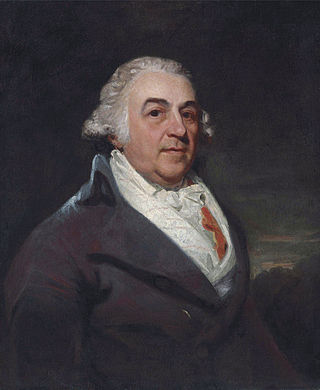
Richard Bache, born in Settle, West Riding of Yorkshire, England, immigrated to Philadelphia, in the colony of Pennsylvania, where he was a businessman, a marine insurance underwriter, and later served as Postmaster-General of the American Post Office. He also was the son-in-law of Benjamin Franklin.

The planet Neptune was mathematically predicted before it was directly observed. With a prediction by Urbain Le Verrier, telescopic observations confirming the existence of a major planet were made on the night of September 23–24, Autumnal Equinox of 1846, at the Berlin Observatory, by astronomer Johann Gottfried Galle, working from Le Verrier's calculations. It was a sensational moment of 19th-century science, and dramatic confirmation of Newtonian gravitational theory. In François Arago's apt phrase, Le Verrier had discovered a planet "with the point of his pen".
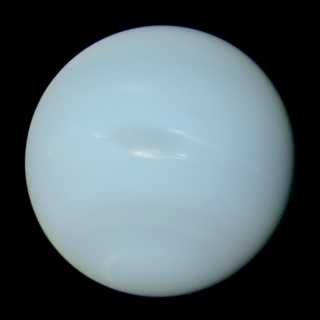
Neptune is the eighth and farthest known planet from the Sun. It is the fourth-largest planet in the Solar System by diameter, the third-most-massive planet, and the densest giant planet. It is 17 times the mass of Earth. Compared to its fellow ice giant Uranus, Neptune is slightly more massive, but denser and smaller. Being composed primarily of gases and liquids, it has no well-defined solid surface, and orbits the Sun once every 164.8 years at an orbital distance of 30.1 astronomical units. It is named after the Roman god of the sea and has the astronomical symbol , representing Neptune's trident.
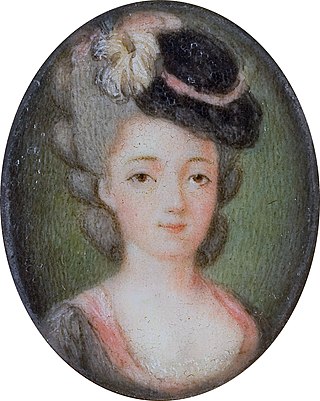
Marie Adrienne Françoise de Noailles, Marquise de La Fayette, was a French marchioness. She was the daughter of Jean de Noailles and Henriette Anne Louise d'Aguesseau. On April 11, 1774, she married Gilbert du Motier, Marquis de Lafayette, who left France in 1776 to volunteer in the American Revolutionary War where he served under General George Washington, then later became a key figure in the French Revolution of 1789.
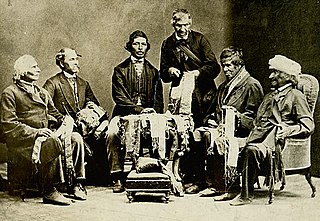
While Karl Marx and Friedrich Engels defined communism as a political movement, there were already similar ideas in the past which one could call communist experiments. Marx himself saw primitive communism as the original hunter-gatherer state of humankind. Marx theorized that only after humanity was capable of producing surplus did private property develop.
This is a bibliography of works on the military history of Canada.

A communist revolution is a proletarian revolution inspired by the ideas of Marxism that aims to replace capitalism with communism. Depending on the type of government, the term socialism can be used to indicate an intermediate stage between capitalism and communism and may be the goal of the revolution, especially in Marxist–Leninist views. The idea that a proletarian revolution is needed is a cornerstone of Marxism; Marxists believe that the workers of the world must unite and free themselves from capitalist oppression to create a world run by and for the working class. Thus, in the Marxist view, proletarian revolutions need to happen in countries all over the world.
References
- ↑ Bedini, Silvio A. (1984). At the Sign of the Compass and Quadrant: The Life and Times of Anthony Lamb. DIANE Publishing Inc. pp. 69–70. ISBN 978-0-87169-741-7 . Retrieved 10 May 2021.
- ↑ Frank, Andrew (2008). American Revolution: People and Perspectives. ABC-CLIO. p. 192. ISBN 978-1-85109-703-6 . Retrieved 7 May 2021.
- ↑ Bulletin: History series. The University of Wisconsin. 1909. p. 35. Retrieved 10 May 2021.
- ↑ Sullivan, Robert (11 December 2008). Rats: Observations on the History & Habitat of the City's Most Unwanted Inhabitants. Bloomsbury Publishing USA. p. 199. ISBN 978-1-59691-917-4 . Retrieved 10 May 2021.